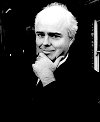 Francis Wheen, born in 1957, was educated at Harrow, where he was a contemporary of Mark Thatcher. Wheen’s Marxist inclinations thus had plenty of material to work on from an early date, and it can be said that his leftist critique of society has always been at least as well grounded in observation as in theory. Based variously at the Guardian, at the Evening Standard and at Private Eye, he has kept up a constant barrage of outgoing artillery fire in the best traditions of polemical journalism – i.e. the polemics take account of the real world. His gift for invective can be uncomfortable for those who find themselves on the other end of it, as I know to my cost, but there is no denying the continuing relevance of his fine anger. His book Hoo-hahs and Passing Frenzies: Collected Journalism 1991-2001, which came out in 2002, remains a model of the genre: it deservedly won the 2003 George Orwell prize. To hindsight, the book, from which the pieces featured here are taken, proves that Wheen, while blazing away at all the expected targets, was already preparing himself for a new impatience: the Left, to which he nominally belonged, was starting to worry him with its incurable yearning for something more decisive than democracy. This new impatience broke into the clear when he gamely pilloried his own newspaper, the Guardian, for apologising –cravenly, in Wheen’s view – to Noam Chomsky over its supposed misrepresentation of his views on the massacre in Srebrenica. Wheen was a valuable addition to the list of signatories on the Euston Manifesto in 2006. The manifesto marked the point when a left-within-the-left lost patience with the host body’s sympathy for any force, no matter how extreme, that might embarrass the Western democracies. Along with Nick Cohen and Christopher Hitchens, Wheen became a target for unreconstructed radical journalists who found their breakaway colleagues guilty of Liberal Universalism. It was an accusation that Wheen, in particular, was well equipped to counter with learned scorn. As a Marxist who had actually read Marx (his biography of Marx was another prize-winner), he has the advantage of being able to provide his own theoretical back-up. But finally what makes him stand out is his inclusive style, sensitive to everything that is happening, and sometimes, remarkably, to what will happen next.
Francis Wheen, born in 1957, was educated at Harrow, where he was a contemporary of Mark Thatcher. Wheen’s Marxist inclinations thus had plenty of material to work on from an early date, and it can be said that his leftist critique of society has always been at least as well grounded in observation as in theory. Based variously at the Guardian, at the Evening Standard and at Private Eye, he has kept up a constant barrage of outgoing artillery fire in the best traditions of polemical journalism – i.e. the polemics take account of the real world. His gift for invective can be uncomfortable for those who find themselves on the other end of it, as I know to my cost, but there is no denying the continuing relevance of his fine anger. His book Hoo-hahs and Passing Frenzies: Collected Journalism 1991-2001, which came out in 2002, remains a model of the genre: it deservedly won the 2003 George Orwell prize. To hindsight, the book, from which the pieces featured here are taken, proves that Wheen, while blazing away at all the expected targets, was already preparing himself for a new impatience: the Left, to which he nominally belonged, was starting to worry him with its incurable yearning for something more decisive than democracy. This new impatience broke into the clear when he gamely pilloried his own newspaper, the Guardian, for apologising –cravenly, in Wheen’s view – to Noam Chomsky over its supposed misrepresentation of his views on the massacre in Srebrenica. Wheen was a valuable addition to the list of signatories on the Euston Manifesto in 2006. The manifesto marked the point when a left-within-the-left lost patience with the host body’s sympathy for any force, no matter how extreme, that might embarrass the Western democracies. Along with Nick Cohen and Christopher Hitchens, Wheen became a target for unreconstructed radical journalists who found their breakaway colleagues guilty of Liberal Universalism. It was an accusation that Wheen, in particular, was well equipped to counter with learned scorn. As a Marxist who had actually read Marx (his biography of Marx was another prize-winner), he has the advantage of being able to provide his own theoretical back-up. But finally what makes him stand out is his inclusive style, sensitive to everything that is happening, and sometimes, remarkably, to what will happen next.